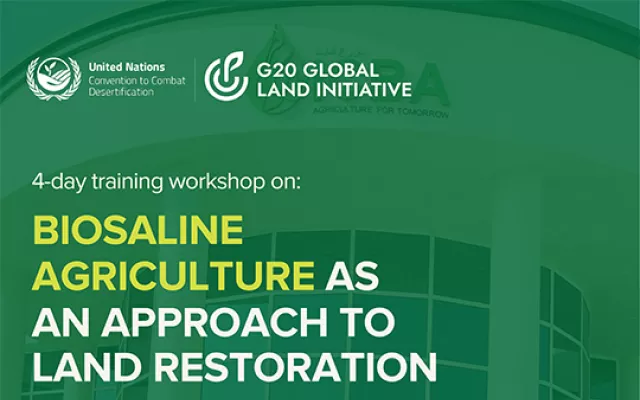Quinoa for marginal environments: Towards future food and nutritional security
Global Forum for Innovations in Agriculture (GFIA) - Innovation Theatre, ADNEC, Abu Dhabi, United Arab Emirates
Quinoa has been identified as one of the most promising crops that could play a key role towards future food and nutritional security in the Middle East and North Africa (MENA), where soil and water salinity is increasingly becoming a constraint to agricultural production. Quinoa is thus seen as an alternative crop with significant potential to have a central role in sustaining farm productivity. Despite the growing global recognition of quinoa's potential, and the favorable results in pilot trails, we still have to overcome the constraints and issues for its successful introduction and scaling-up in the new/non-traditional growing environments. Among those are:
- Limited availability of genetic material appropriate for cultivation outside its indigenous environment.
- Limited accompanying best management practices for its cultivation, including fertilization, pest and diseases control, harvesting and processing in these new regions and areas.
- Non-existent local capacity for its cultivation, harvesting and processing outside the Andes region amongst agricultural and academic institutions, extension services and farmers.
- Little knowledge about quinoa's nutritional benefits and how it can be incorporated into local dishes among a large percentage of the inhabitants of regions outside the Andes.
The International Center for Biosaline Agriculture (ICBA) in Dubai, UAE has since 2007 been working on quinoa in partnership with the Ministry of Environment and Water (MOEW) of the United Arab Emirates (UAE), Abu Dhabi Farmer’s Service Center (ADFSC) to evaluate and test the performance of several quinoa varieties for their productivity when grown in marginal conditions. It has identified and developed four high yielding salt- and heat-tolerant quinoa varieties that are ready to be tested in other agro-ecological zones.
The Food and Agriculture Organization of the United Nations (FAO) has also been in the forefront of quinoa research, keeping in view its unique nutritional characteristics and adaptability to a wide range of agro-ecological conditions especially in the marginal areas and has initiated a Regional Project of Technical assistance for the introduction of Quinoa and appropriation/ institutionalization of its production in Algeria, Egypt, Iran, Iraq, Lebanon, Mauritania, Sudan, and Yemen.
- International Center for Biosaline Agriculture (ICBA), United Arab Emirates
- Food and Agriculture Organization of the United Nations (FAO)
Partners
-
Global Forum for Innovations in Agriculture (GFIA), United Arab Emirates
<ul>
<li>Dr. Redouane Choukrallah (ICBA)</li>
</ul>
<p><strong>Panelists</strong></p>
<ul>
<li>Dr. Nanduri K. Rao, Plant Genetics Resources Scientist (ICBA)</li>
<li>Dr. Dost Muhammad (FAO)</li>
</ul>









